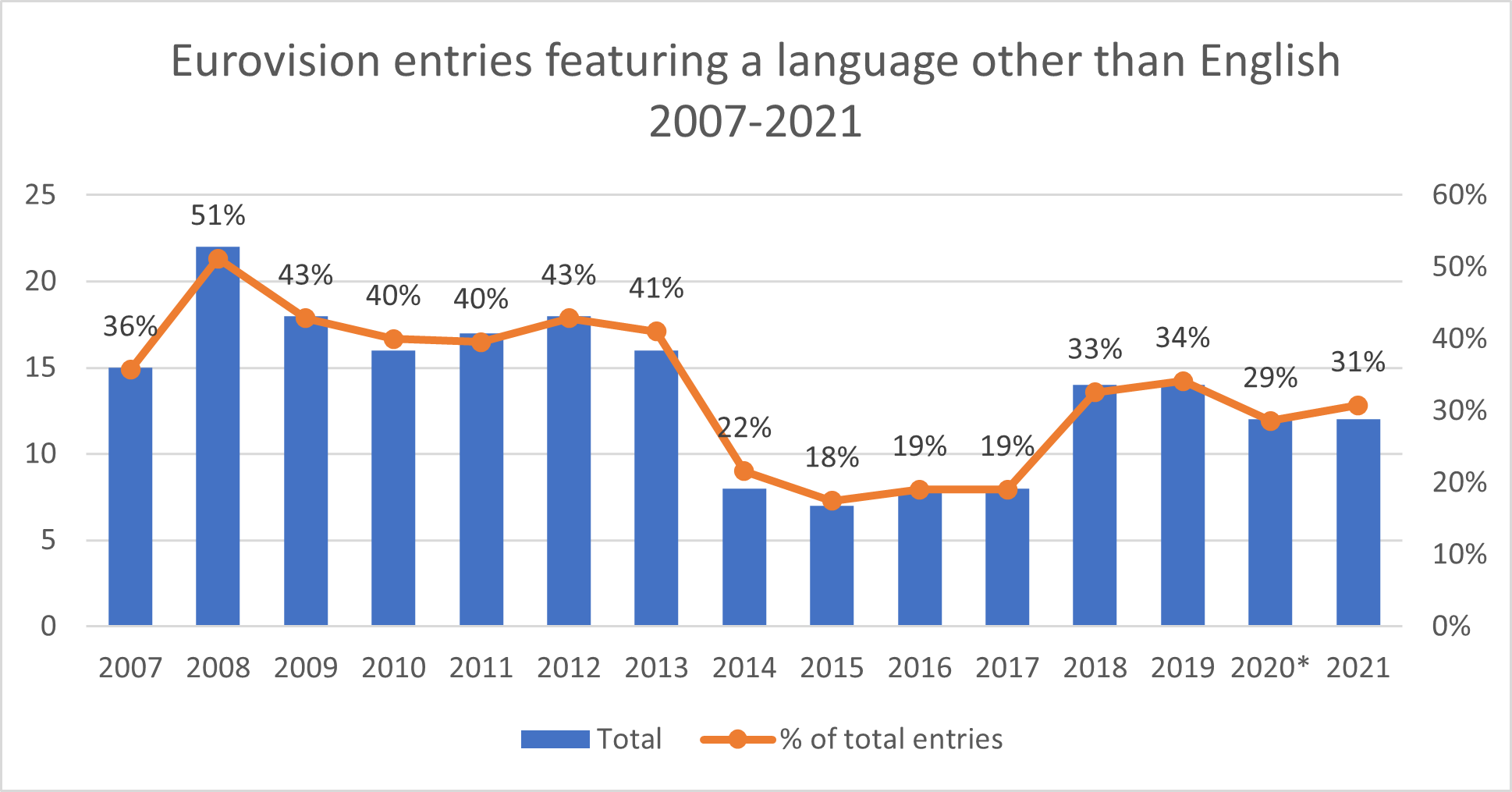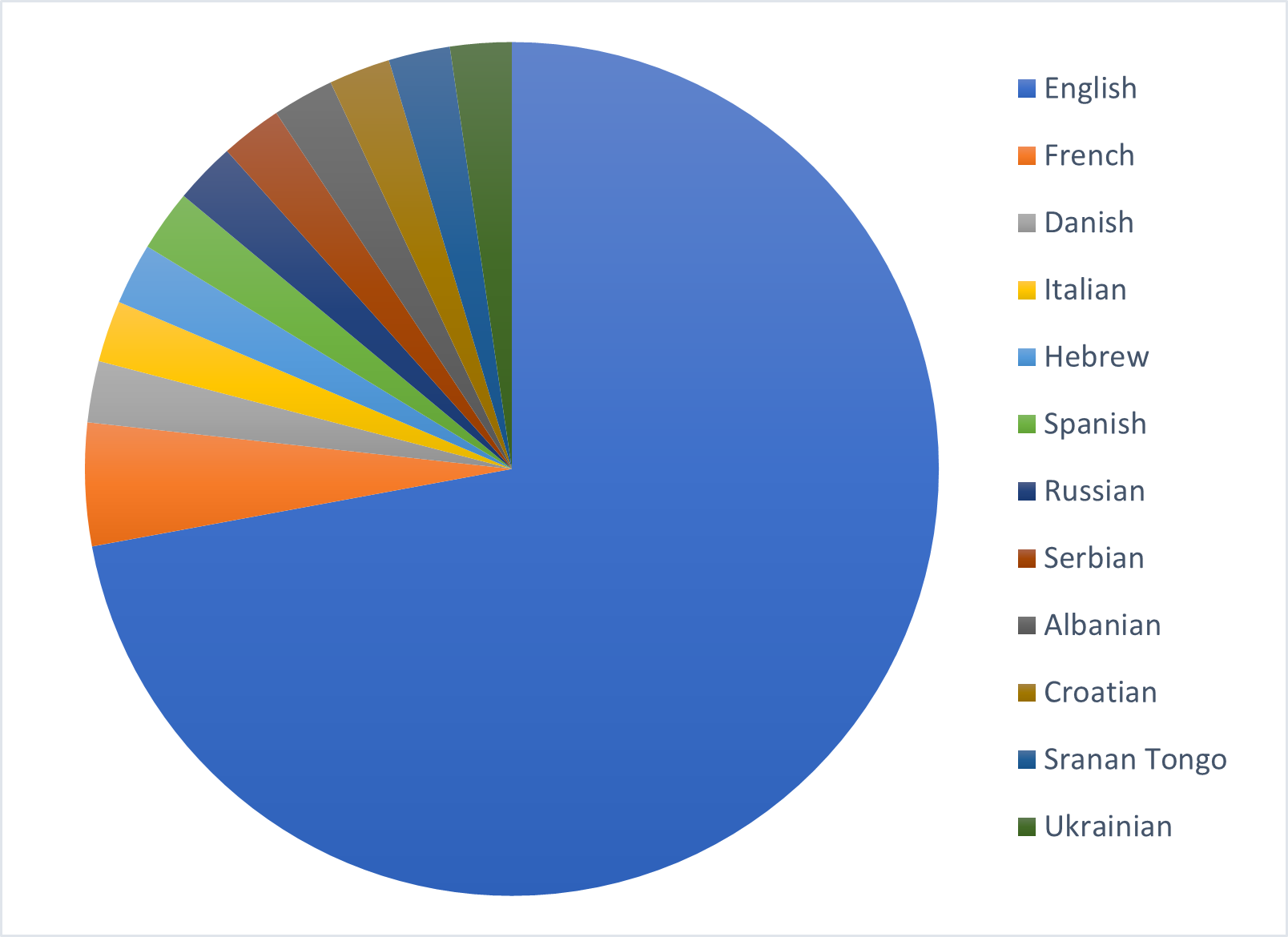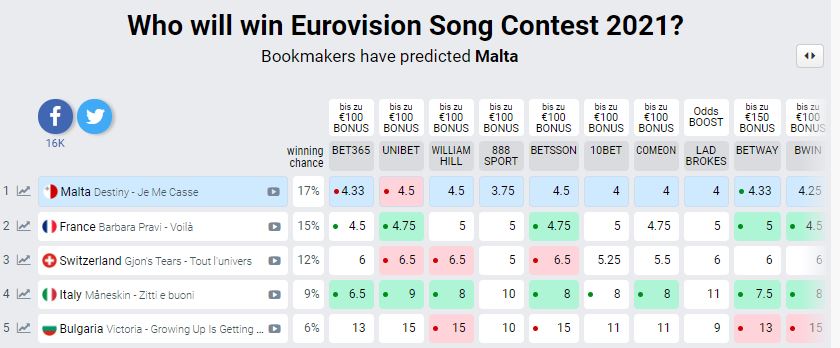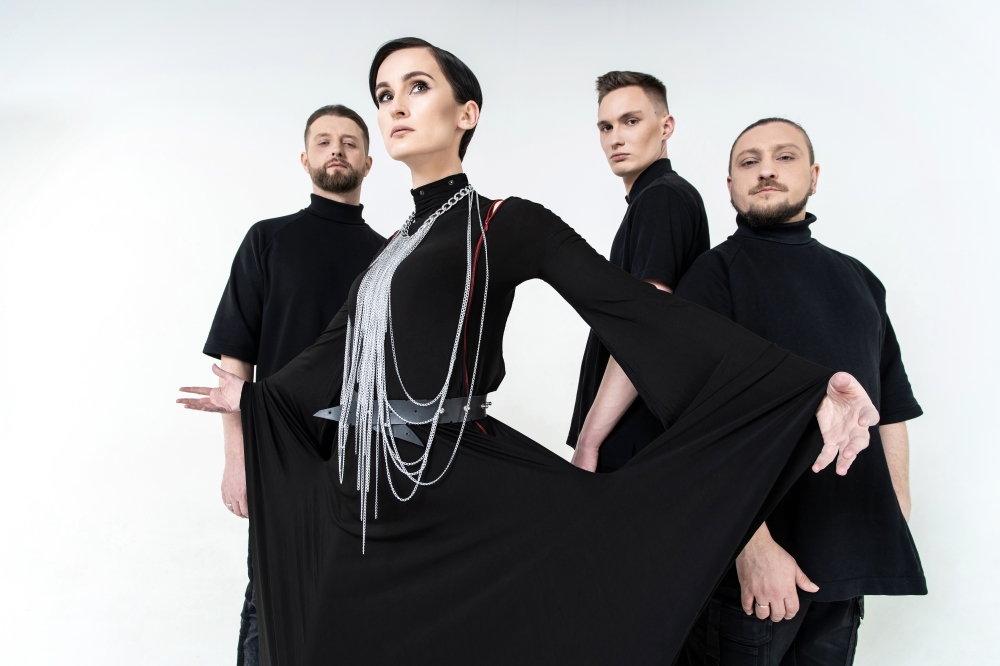
I like languages. But I love Eurovision. So naturally the topic of languages at Eurovision seems like something I’d be into. And I am! I love the idea that music can bridge the gap between speakers of different languages and that enjoying a song is often a lot more than just understanding the lyrics. I love the idea of someone in my small home town listening to a song in a language they’ve never heard before and thinking, ‘Yeah it’s alright, that.’ The magic of the Eurovision Song Contest.
So, let’s take a look at which languages we will be hearing at the 2021 edition of the contest kicking off on 18 May in Rotterdam.
For the most recent contest, click here: National languages at Eurovision 2022
*Please note: in this post, I will occasionally use the phrase ‘foreign language’ to denote non-English languages. This is purely because re-using the phrase ‘songs performed at-least partly in a language other than English’ is just boring and awkward. I am aware that French is not a foreign language in France, obviously.
Firstly, let’s start with the basics. (Die-hard Eurofans might want to skip ahead to the juicy bits.)
How many songs in the Eurovision Song Contest 2021 feature a foreign language?
In total, 12 songs (out of 39) will be performed at least partially in a language other than English.
In addition, the entries from both Cyprus and Malta are sung in English but have foreign-language titles, which are repeated. Cyprus have once again gone for a Spanish title (El Diablo), while Malta have opted for French (Je Me Casse).
Which countries are singing in their native language at Eurovision 2021?
At the Eurovision Song Contest 2021, the following countries will sing at least partly in a foreign language: Albania, Croatia, Denmark, France, Italy, Israel, the Netherlands, Russia, Serbia, Spain, Switzerland, Ukraine.
Which languages will be heard at Eurovision 2021?
Albanian, Croatian, Danish, French, Italian, Hebrew, Sranan Tongo, Russian, Serbian, Spanish and Ukrainian will all be heard on the Eurovision stage this year.
Additionally, the Czech entry also includes one line of Czech. (But I haven’t included this in any further statistics because the line is very “blink-and-you’ll-miss-it.”)
Now let’s get to the good stuff… statistics! (And very basic graphs that I made in excel…!)
How does Eurovision 2021 compare to previous years?

For the second year in a row, 12 entries feature a language other than English. However, since the withdrawal of Armenia and Belarus from this year’s contest, the proportion of songs featuring national languages has increased.
Had Belarus’ Russian-language song not been disqualified, we would have seen an increase to 13 songs and 33%.
However, overall, the number of foreign-language entries is still much lower than the recent peak in 2018 (the year after Salvador Sobral won for Portugal with a Portuguese-language ballad.)
For an analysis of languages at Eurovision 2019, click here.
Which languages are making a comeback this year?

Languages of Eurovision 2021
For me, there are two surprises this year when it comes to languages: Russian and Danish.
Firstly, we very almost had two entries in Russian this year! (Belarus’ entry was very rightfully considered too politic and was disqualified.) Russian has not been heard on the Eurovision stage since 2011 and not since Moscow hosted the event in 2009 did more than one song feature the language.
As I’ve mentioned in this post, Russian is a) a beautiful language and b) very widely spoken and understood in Europe, so I find it surprising we don’t hear more entries featuring the language. However, given the reaction to Manizha’s entry in her home country, I don’t expect we’ll have a lot more Russian-language entries in future.
Secondly, Denmark is sending its first entry entirely in Danish since 1997! This year’s Danish entry is performed by 80s-inspired duo Fyr og Flamme, who have had a string of popular Danish-language hits recently, giving us (i.e. me) hope that more Danish-language entries might be on the way.
Eurovision 2021 will also feature the debut of a new language: Sranan Tongo. The language is an English-based creole, primarily spoken in Suriname, a former Dutch territory. The Dutch entrant, Jeangu Macrooy, hails from Suriname and will feature the language in his uplifting emotional ballad about black empowerment.
Of course, we have one noticeable departure this year. For the first time ever in their history, Portugal will not be singing in Portuguese. The Eurovision fandom seems genuinely heartbroken about this, as Portugal were one of the few countries to have always sent entries in their native language. Will singing in English improve their chances of qualifying? I doubt it very much. RIP Portuguese.
Could a non-English entry win Eurovision 2021?
HELL YES. The chances of a non-English language winner are higher this year than I can remember. In fact, the chances of the first French-language winner since 1989 are looking particularly good.

Odds for winning Eurovision 2021 – as of 22 April 2021
As of 22 April 2021 (when I finally sat down to write this post), the top 5 counties in the odds at Eurovisionworld.com were 1. Malta 2. France 3. Switzerland 4. Italy and 5. Bulgaria.
The French and Swiss entries are entirely in French and the Italian entry in Italian. Interestingly, the Maltese entry (though sung entirely in English) has a French title which is featured thoroughout the song: Je Me Casse (which apparently roughly translates to ‘I’m outta here.’)
Sitting much lower in the odds are Russia and Ukraine, ranking at around 15th and 16th respectively in the odds.
Looking to the future: can we hope for more foreign languages at Eurovision 2022?
It seems likely in my opinion, especially if France and Switzerland perform as well as predicted.
Despite the same number of songs being performed in a language other than English staying the same compared to last year (12), there seems to be a few noticeable trends.
The use of national languages in Eastern Europe is a good example. Ukraine, Russia and Belarus all entered songs this year in one of their national languages (although Belarus’ entry was later disqualified), which is something that hasn’t happened… ever. In fact, Russia haven’t sung in Russian for 10 years. Hopefully this is something that will continue in 2022!

Techno-folk group Go_A will represent Ukraine in 2021
Secondly, the Western Balkans are continuing to do us proud in their native languages. Although Slovenia has opted for English this year compared to Slovene in 2020, Albania has returned to its native Albanian after a brief fling with English in 2020. Serbia and Croatia are also performing (at least partly) in their native language/s, continuing a positive trend; that’s four years on the trot for Serbia and three for Croatia. I think we can expect this trend to continue in 2022.
Otherwise, in Finland’s national selection this year, 3 out of 7 songs were sung almost entirely in Finnish. Maybe we can expect a Finnish-language entry in 2022?
What are your thoughts? What’s your favourite non-English language winner at Eurovision?
Comment below!



